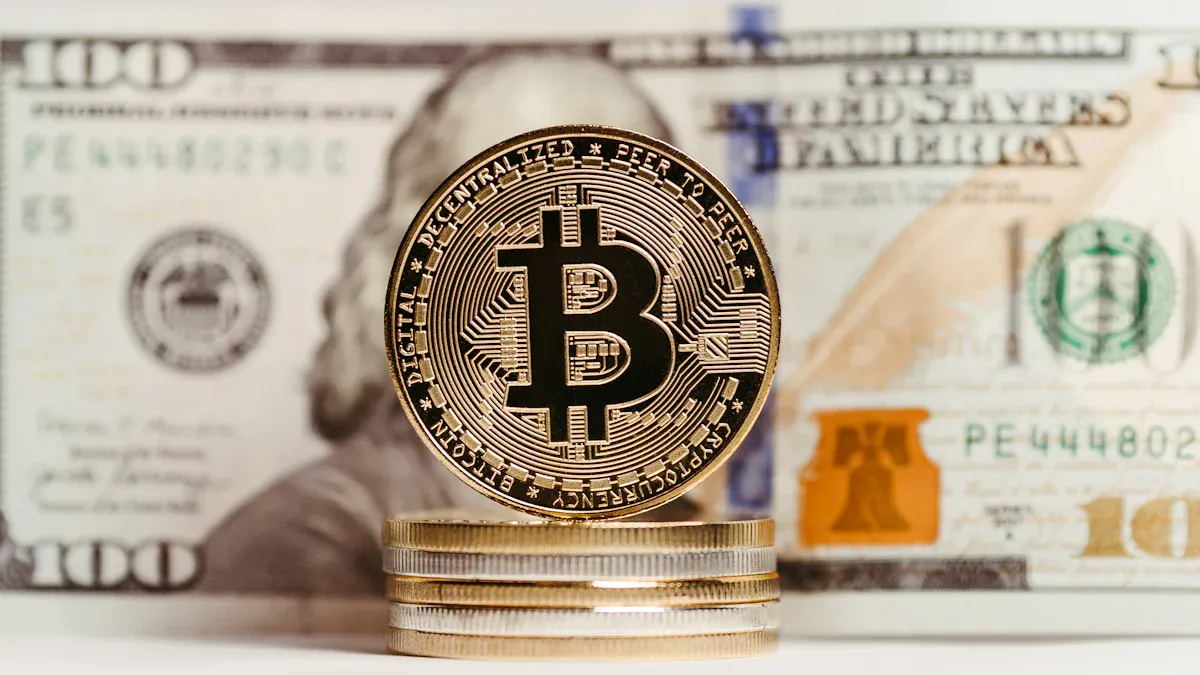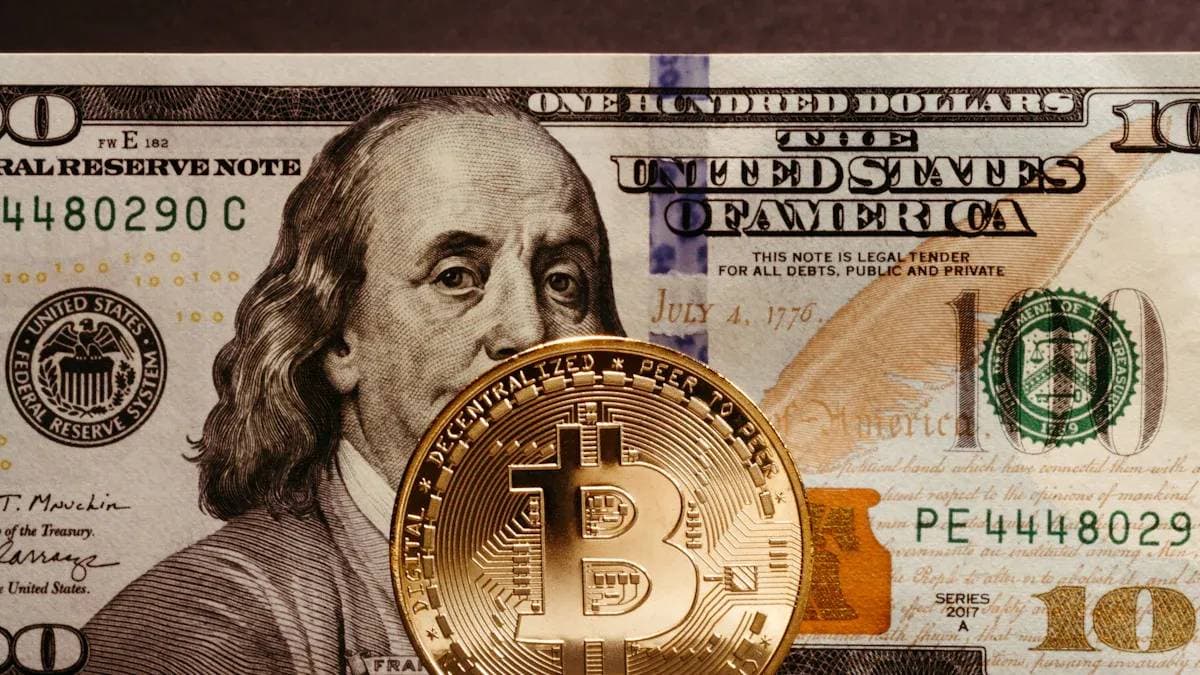- EasyCard
- Trade
- Help
- Announcement
- Academy
- SWIFT Code
- Iban Number
- Referral
- Customer Service
- Blog
- Creator
Global Cryptocurrency Regulation Map: Which Countries Are Leading the Future

Image Source: pexels
The European Union, with its comprehensive MiCA legislation, along with the UAE, Hong Kong, and Singapore, is becoming a pioneer in cryptocurrency regulation. However, the global cryptocurrency regulatory landscape still exhibits diversity and fragmentation. Adoption rates and user scales of cryptocurrencies vary significantly across regions, reflecting different market environments and regulatory attitudes in various countries.
How are these leaders pointing the way for the industry’s future? How will other countries respond to this trend?
Core Points
- The EU, UAE, Hong Kong, and Singapore are leaders in cryptocurrency regulation, having established clear laws and dedicated institutions.
- The EU’s MiCA legislation provides a unified regulatory framework for crypto assets across 27 member states, aiming to protect investors and promote innovation.
- The United States faces challenges in cryptocurrency regulation due to differing views from various regulatory bodies on crypto assets, leading to market uncertainty.
- Clear regulation is crucial for the crypto industry, providing a stable operating environment for businesses and protecting investors.
- Investors should focus on whether platforms hold compliance licenses and how they protect client assets.
Regulatory Leaders: Pioneers Shaping the Industry’s Future

Image Source: pexels
In the complex global cryptocurrency regulatory map, a few jurisdictions stand out with their forward-looking legislative frameworks. They not only provide valuable legal certainty for market participants but also set benchmarks for regulatory coordination worldwide. The EU, UAE, Hong Kong, and Singapore are outstanding representatives among these pioneers.
EU: The Era of Unified Regulation Under MiCA
The European Union has ushered in a new era of unified regulation through the Markets in Crypto-Assets Regulation (MiCA). MiCA is widely regarded as the most comprehensive crypto asset legal framework globally, with its core goal being to establish a clear and harmonious regulatory environment for 27 member states while encouraging innovation.
The legislation aims to consolidate the entire industry by strengthening investor protection, maintaining market integrity, and financial stability. MiCA aligns with existing EU regulations such as the Market Abuse Regulation (MAR), greatly enhancing the security of the crypto market and effectively curbing illegal activities like money laundering and terrorist financing.
MiCA’s primary objective is to foster innovation and enhance the attractiveness of the crypto asset industry while ensuring investors are adequately protected.
MiCA establishes differentiated regulatory rules for different types of crypto assets and market participants, particularly imposing clear requirements on stablecoins and crypto asset service providers (CASPs).
| Category | Stablecoins (Asset-Referenced Tokens & Electronic Money Tokens) | Crypto Asset Service Providers (CASPs) |
|---|---|---|
| Authorization Requirements | Must obtain prior authorization from the National Competent Authority (NCA). | Must obtain MiCA authorization to provide services across the EU. |
| Core Obligations | Publish an approved whitepaper and meet operational requirements for capital, governance, reserve asset holding, etc. | Comply with a series of strict operational norms including custody, trading platform operations, order execution, anti-money laundering, etc. |
| Effective Date | Relevant provisions apply from June 30, 2024. | Relevant requirements apply from December 30, 2024. |
To obtain a MiCA license, companies must meet a series of stringent standards, including:
- Publish a compliant whitepaper: Submit a whitepaper containing standardized information to regulators.
- Sound internal governance: Establish risk management, data protection, and anti-money laundering policies similar to traditional financial institutions.
- Financial stability: Prove the company has sufficient capital to maintain operations.
- Secure infrastructure: Ensure technical systems comply with EU security and privacy standards (such as GDPR).
Through these provisions, MiCA provides crypto businesses with a “single passport” to operate legally across the entire EU market, undoubtedly enhancing the region’s appeal to global capital and talent.
UAE: Dubai VARA’s Dedicated Regulatory Framework
The UAE, particularly Dubai, is rapidly positioning itself as a global crypto hub. The key to its success lies in establishing the world’s first independent crypto asset regulatory body—the Virtual Assets Regulatory Authority (VARA).
VARA has broad authority to regulate all virtual asset-related activities in Dubai (excluding the DIFC financial free zone). It aims to promote market growth and technological innovation while resolutely combating financial crimes. VARA’s regulatory framework strikes a clever balance between flexibility and rigor.
VARA’s core functions include:
- Formulate overall policies and strategies for virtual asset services.
- Issue and regulate licenses for virtual asset service providers (VASPs).
- Oversee the issuance and trading processes of virtual assets.
VARA’s enforcement powers are equally strong. For non-compliant entities, VARA can impose fines up to 50 million dirhams (approximately $13.6 million USD) or suspend or even revoke their operating licenses. This clear and forceful regulatory stance has instead created a fair competitive environment for compliant businesses.
This clear regulatory path has attracted numerous top global crypto companies to set up operations. Major exchanges including Binance, OKX, Bybit, and Crypto.com have successfully obtained various licenses issued by VARA, proving the strong appeal of the Dubai model.
Hong Kong: VASP Licensing System and Compliance Innovation
Hong Kong is actively consolidating its position as an international financial center and extending it to the virtual assets sector. The Securities and Futures Commission (SFC) of Hong Kong has launched a dedicated virtual asset service provider (VASP) licensing system, marking a comprehensive and prudent regulatory approach to the crypto industry.
The system follows the core principle of “same activity, same risk, same regulation”, aiming to effectively manage investor protection and anti-money laundering (AML) risks. All centralized cryptocurrency exchanges operating in Hong Kong or providing services to Hong Kong investors must obtain a VASP license.
Key requirements for applying for a VASP license include:
- Company Eligibility: The applicant must be a company incorporated in Hong Kong with a physical office in Hong Kong.
- Responsible Officers: Must appoint at least two responsible officers, with at least one resident in Hong Kong, who need to have relevant experience in finance and the virtual assets industry.
- Fit and Proper Test: The company’s key personnel, directors, and ultimate owners must pass the “fit and proper” test, ensuring no records of financial misconduct.
- Compliance System: Must establish robust anti-money laundering (AML) and counter-terrorist financing (CFT) policies and implement strict customer due diligence (KYC) procedures.
Since the system took effect in June 2023, the SFC has set a clear transition period for the market. Platforms that fail to submit applications within the specified timeframe must orderly exit the market. This clear rule provides a stable development environment for compliant platforms, such as those offering virtual asset trading, custody, and cross-border payment solutions. They demonstrate innovation capabilities under the compliance framework by segregating client assets from company assets, conducting strict investor suitability assessments, and other measures.
Singapore: Prudent Path Under the Payment Services Act
Singapore is another major fintech hub in Asia, adopting a prudent and clear path to cryptocurrency regulation. The Monetary Authority of Singapore (MAS) regulates the crypto industry through the Payment Services Act (PSA).
The PSA does not regulate all crypto activities but precisely focuses on digital payment token (DPT) services with payment attributes. This approach reflects Singapore’s pragmatic, risk-based regulatory philosophy.
Under the PSA, regulated DPT services mainly include:
- Buying and selling digital payment tokens (i.e., cryptocurrency trading).
- Providing platforms that facilitate DPT exchanges.
- DPT transfer services.
- Providing custody wallet services for DPT.
Similar to Hong Kong’s VASP system, companies wishing to provide DPT services in Singapore must apply for a license from MAS and meet strict anti-money laundering and counter-terrorist financing requirements. MAS’s approval process is known for its prudence, aiming to ensure only companies with strong compliance capabilities and robust operational models enter the market.
Although the license application threshold is high, this prudent path has earned Singapore a reputation for being “safe and compliant,” attracting numerous global cryptocurrency regulatory compliant businesses seeking long-term stable development.
Global Cryptocurrency Regulation: Diverse Paths of Major Economies

Image Source: pexels
Unlike the clear regulatory frameworks of the leaders, many major global economies are still exploring regulatory paths suitable for themselves. Although the speed and clarity of actions in these countries vary, they collectively form an indispensable diversified exploration in the global cryptocurrency regulation landscape.
United States: Fragmented Landscape and Enforcement-Based Regulation
The US market faces a significant challenge: fragmented regulatory authority and ambiguous rules. The two main regulatory bodies—the Securities and Exchange Commission (SEC)isés and the Commodity Futures Trading Commission (CFTC)—hold different views on the classification of crypto assets, leading to market uncertainty.
| Agency | Cryptocurrency Classification | Regulatory Basis |
|---|---|---|
| SEC | Most tokens are considered “securities” | Howey Test |
| CFTC | Bitcoin and others are considered “commodities” | Commodity Exchange Act (CEA) |
The SEC tends to use the “Howey Test” from 1946 to determine whether a crypto asset is a security and has filed lawsuits against projects like Ripple (XRP). This “enforcement-based regulation” allows many projects to operate without clear legal guidance, facing legal risks at any time. To resolve this deadlock, the US Congress is considering bills like the Financial Innovation and Technology for the 21st Century Act (FIT 21) to provide the long-awaited clarity for the market.
United Kingdom: Phased Regulatory Strategy
The UK adopts a more prudent and pragmatic “phased” regulatory approach. It does not create a new legal system but chooses to gradually incorporate crypto asset activities into the existing financial services regulatory framework (FSMA).
The UK Treasury plans to proceed in two steps:
- Phase One: First bring fiat-pegged stablecoins under regulation.
- Phase Two: Subsequently expand the regulatory scope to broader crypto asset trading and investment activities.
In addition, the Financial Conduct Authority (FCA) has set extremely strict rules for crypto asset marketing, requiring promotional information to be “fair, clear, and not misleading” and setting a 24-hour cooling-off period for investors, fully demonstrating its determination to protect consumers.
Japan: From Early Exploration to Continuous Improvement
As one of the earliest countries to regulate cryptocurrencies, Japan’s regulatory framework has continuously matured after experiencing hacking incidents like Mt. Gox. Japan has revised the Payment Services Act (PSA) to formally recognize Bitcoin and other crypto assets as legitimate payment methods and implement strict licensing management for exchanges.
Japan’s regulatory core focuses on user asset security, with provisions including:
- Exchanges must segregate user assets from company-owned assets.
- At least 95% of user digital assets must be stored in offline cold wallets.
- Mandatory enforcement of strict anti-money laundering (AML) and customer due diligence (KYC) procedures.
This path from early exploration to continuous improvement has allowed Japan to accumulate valuable experience in the global cryptocurrency regulation field.
Australia: Early Intervention in ICOs and Privacy Coins
Australia’s regulatory characteristic is rapid response and early intervention in specific risk areas. As early as 2017, the Australian Securities and Investments Commission (ASIC) issued guidance on initial coin offerings (ICOs), clarifying conditions under which tokens may be considered securities.
For privacy coins (such as Monero), Australia has taken a tough stance. Due to concerns about their use in illegal activities, regulators have effectively banned licensed trading platforms from listing such tokens. Currently, the Australian government is consulting on licensing and custody requirements for crypto asset service providers to establish a more comprehensive regulatory system. At the same time, countries like Mexico are actively exploring their own regulatory paths through their FinTech Law, further enriching the global regulatory landscape.
The regulatory leaders share common characteristics: they provide clear legal frameworks, establish dedicated institutions, and emphasize investor protection. These clear rules are key to attracting capital and talent. Regulatory uncertainty may lead to stagnation in innovation, while in markets with clear rules, the industry has greater growth potential.
Looking to the future, global cryptocurrency regulation may see regional convergence. International bodies such as the Financial Stability Board (FSB) and the International Organization of Securities Commissions (IOSCO) are developing global standards to promote cross-border regulatory cooperation in response to the global nature of the market.
FAQ
Why Is Clear Regulation So Important for the Crypto Industry?
Clear regulation provides a stable operating environment for businesses, reducing legal uncertainty. It effectively protects investors, enhances market confidence, and attracts long-term capital and top talent to the sector. Clear rules are key to the industry’s transition from wild growth to mature development.
What Impact Does the MiCA Legislation Have on Companies Outside the EU?
Any crypto asset company wishing to provide services to residents of the EU’s 27 member states must obtain MiCA authorization. This means that even companies outside the EU need to comply with its provisions to enter this unified market. This promotes the convergence of global regulatory standards.
As an Ordinary Investor, What Regulatory Points Should I Focus On?
Investors should focus on whether the platform holds a compliance license and its client asset protection measures. For example, whether the platform segregates user funds from company assets. Understanding this information helps assess the platform’s security and protect personal assets.
What Is the Difference Between “Enforcement-Based Regulation” and “Framework-Based Regulation”?
“Framework-based regulation” provides clear rules for the industry through legislation, such as the EU’s MiCA. “Enforcement-based regulation” establishes standards through legal actions on individual cases in the absence of clear rules, such as the US SEC’s approach. The former provides certainty, while the latter brings uncertainty.
*This article is provided for general information purposes and does not constitute legal, tax or other professional advice from BiyaPay or its subsidiaries and its affiliates, and it is not intended as a substitute for obtaining advice from a financial advisor or any other professional.
We make no representations, warranties or warranties, express or implied, as to the accuracy, completeness or timeliness of the contents of this publication.




Contact Us
Company and Team
BiyaPay Products
Customer Services
BIYA GLOBAL LLC is a licensed entity registered with the U.S. Securities and Exchange Commission (SEC No.: 802-127417); a certified member of the Financial Industry Regulatory Authority (FINRA) (Central Registration Depository CRD No.: 325027); regulated by the Financial Industry Regulatory Authority (FINRA) and the U.S. Securities and Exchange Commission (SEC).
BIYA GLOBAL LLC is registered with the Financial Crimes Enforcement Network (FinCEN), an agency under the U.S. Department of the Treasury, as a Money Services Business (MSB), with registration number 31000218637349, and regulated by the Financial Crimes Enforcement Network (FinCEN).
BIYA GLOBAL LIMITED is a registered Financial Service Provider (FSP) in New Zealand, with registration number FSP1007221, and is also a registered member of the Financial Services Complaints Limited (FSCL), an independent dispute resolution scheme in New Zealand.



















